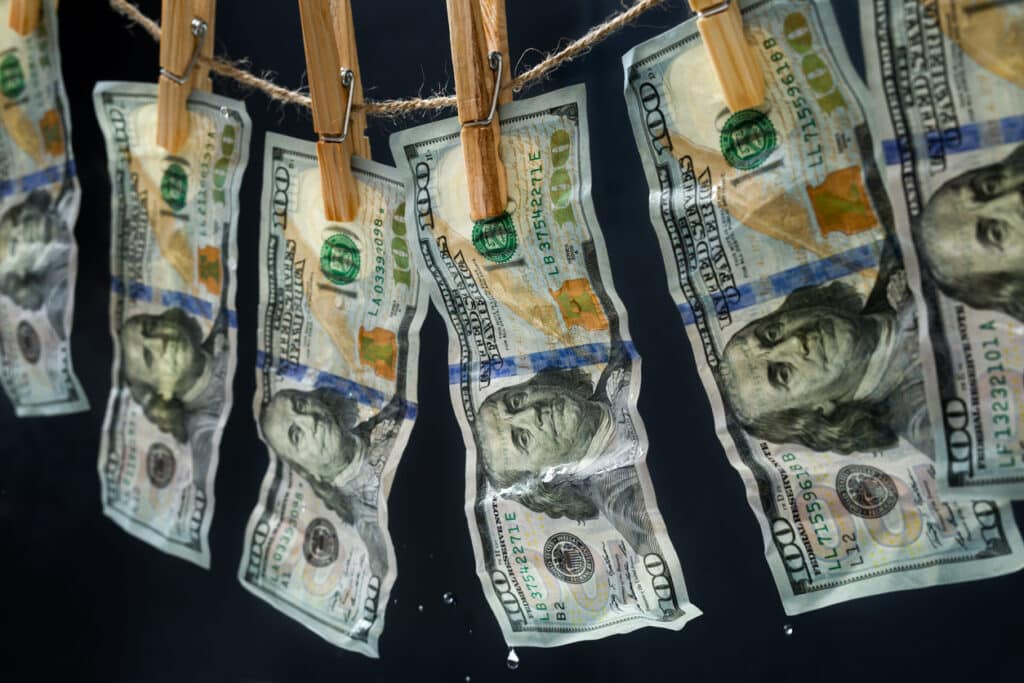Since the Anti-Money Laundering Whistleblower Act (AML Act) was passed in January, whistleblower advocates and experts have criticized it for lacking key provisions to ensure that whistleblowers are properly incentivized and protected. Whistleblower groups are urging Congress to fix a number of issues with the Act, including the lack of guaranteed reward minimums and a loophole which excludes employees at FDIC-insured institutions from retaliation protections.
In a new article for JD Supra, whistleblower law expert Stephen M. Kohn, a founding partner at the qui tam firm Kohn, Kohn & Colapinto highlights another shortcoming of the AML whistleblower legislation: it relies on Congressional appropriation to fund whistleblower rewards.
Kohn explains that all successful whistleblower reward laws, such as the Dodd-Frank Act (DFA) and False Claims Act (FCA), tie the funding for whistleblower rewards directly to the sanctions obtained from fraudsters. For example, under the DFA, qualified SEC whistleblowers, individuals who voluntarily provide original information to the SEC which leads to a successful enforcement action, are entitled to an award of 10-30% of the funds recovered by the government in the action. Rewards are paid out of a fund entirely financed through sanctions collected in enforcement actions brought by whistleblowers.
According to Kohn, “[t]his process not only incentivizes reporting it also incentivizes whistleblowers to work closely with law enforcement in helping to obtain a successful prosecution. If there is no successful enforcement action, the whistleblower gets nothing.”
While the AML Whistleblower Act entitles qualified whistleblowers to rewards of up to 30% of the funds recovered by the government in connection with their disclosure, the Act does not establish a fund financed by sanctions. Instead, it is left to Congress to appropriate funding for the rewards program.
According to Kohn, the question of whether whistleblower rewards should be financed through appropriations was already answered by Congress in 2016. Kohn details a Congressional hearing on this topic during which, following expert testimony on the history of qui tam whistleblower laws, all the Committee members “acknowledged the importance of paying whistleblowers outside the formal appropriations process on the official hearing record.”
In the article, Kohn quotes Representative Gerald Connolly (D-VA), who at the hearing stated “whistleblowers are only willing to risk their careers and blow the whistle if there is some protection in the form of an award. That’s why Congress authorized agencies to issue those awards to whistleblowers—to guarantee that one of the incentives for whistleblowers to come forward is never in doubt and never tied up in uncertain appropriations processes.”
Following this hearing, the Agency Accountability Act, a bill mandating that most federal expenditures go through the Congressional appropriations process, was amended to exempt whistleblower reward payments from this mandate. Kohn explains that as a result, “the importance of paying whistleblowers directly from the sanctions obtained in enforcement cases was well established, in a completely bi-partisan manner, based on the law, the historical record, the proven success of existing qui tam laws, and ultimately common sense.”
Kohn further argues that “[t]he need for AML whistleblowers to obtain guaranteed compensation when they follow the law and provide actionable information regarding money laundering is even more compelling than in other whistleblower laws.” This is because, according to Kohn, many AML whistleblowers are not U.S. citizens and are thus not guaranteed the anti-retaliation protections of U.S. whistleblower laws. “Without a guarantee of compensation, these whistleblowers are left completely unprotected and at risk,” Kohn explains. “Given the criminal nature of money laundering, AML whistleblowers not only risk losing their jobs but also face life-threatening risks to themselves and their families,” he adds.
Kohn concludes his article by stating: “the only way the AML law will work in practice is if it is amended to be consistent with the essential whistleblower provisions contained in the DFA, including the payment process. The AML Act needs to be fixed so that its entire compensation methodology conforms to the DFA. This starts with granting rewards based on all of the sanctions obtained in AML cases (civil, administrative and criminal), guaranteeing a minimum payout of no less than 10% of all sanctions obtained, and ensuring the money used to pay these awards comes from special funds obtained directly from the criminals the whistleblowers helped bring to justice.”
In April, a group of whistleblower advocacy groups led by the National Whistleblower Center (NWC) sent a letter to Congress urging legislative action to fix the AML Whistleblower Act. Similarly to Kohn’s article, the letter states that the law “should be strengthened in conformance with the existing highly effective Dodd-Frank Act model.”
According to recent reporting, the AML whistleblower program has so far struggled to incentive whistleblowers in part due to the legislative shortcomings criticized by whistleblower advocates.
NWC currently has an action alert requesting that individuals tell Congress to strengthen the whistleblower provisions of the AML Act.
Read:
